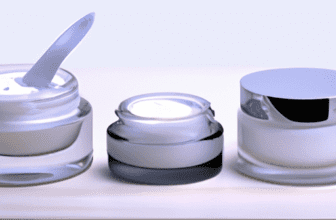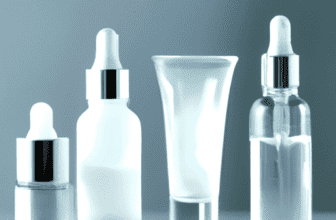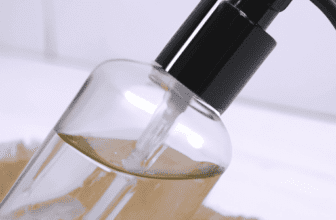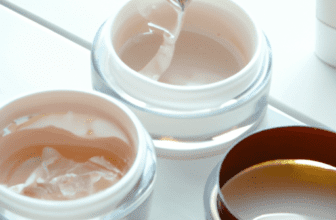Debunking the Myth: Does Almond Milk Cause Acne?
.jpg)
Introduction: Debunking the Myth: Does Almond Milk Cause Acne?
Almond milk is sometimes linked to acne, but is there any truth? Let’s investigate this myth. No direct link between almond milk and acne exists. Acne is due to hormones, excess oil, and clogged pores, not food usually. However, reactions to certain foods can be different. Try eliminating almond milk for some weeks, and if it helps, great! If not, talk to a dermatologist.
To improve skin health:
- Eat a balanced diet of fruits, veggies, whole grains, and lean proteins.
- Drink enough water.
- Cleanse face with gentle products.
- Avoid touching face too much.
- Manage stress.
These steps can help your skin and potentially reduce acne. Everyone’s skin is different, so listen to your body and talk to a healthcare professional. Acne? It’s like playing an endless ‘Whac-A-Zit’ game with no reward.
Understanding Acne
To understand acne, delve into the sub-sections ‘What is acne?’ and ‘Factors that contribute to acne development’. Gain insights into the causes and triggers of this common skin condition. Unravel the truth behind the myth surrounding almond milk and its alleged connection to acne.
What is acne?
Acne is a common skin condition, causing pimples, blackheads, and whiteheads. It happens when the hair follicles get clogged with oil, dead skin cells, and bacteria. This often results in redness, inflammation, and pain. Affecting both teenagers and adults, acne can appear on various body parts, including the face, chest, back, and shoulders.
Hormonal changes during puberty play a big role in teen breakouts. There are many other causes, too. Such as increased oil production, certain medications, environmental irritants, and genetics. Stress and diet can also affect how severe the acne is. Greasy foods and chocolate are usually blamed, but there’s no solid proof. Eating well and managing stress can help with skin health.
Treatments include topical creams with benzoyl peroxide or salicylic acid. A dermatologist can recommend the best approach, based on your case.
The AAD conducted a study which showed that 85% of people between 12 and 24 struggle with acne.
Factors that contribute to acne development
Hormonal changes can cause a change in sebum production, which can lead to clogged pores. Acne can run in families, with certain genes making you more likely to develop it. Eating high glycemic index foods or dairy can make acne worse for some. Stress too can create hormonal imbalances and increase inflammation, leading to acne. Poor skincare habits can irritate the skin and cause acne. Pollutants and chemicals can aggravate existing breakouts.
It is important to remember that each individual’s experience with acne is unique. In addition to the above, there may be other contributing factors.
Pro Tip: Establishing a consistent skincare routine with non-comedogenic products can help fight acne. Who knew almonds could be so milky!
Exploring Almond Milk
To delve into almond milk and its impact on acne, uncover the truths behind the myth. Discover the essence of almond milk, and explore its nutritional value and benefits.
What is almond milk?
Curious about almond milk? Here’s the scoop: it’s a dairy-free alternative made by blending almonds with water. It has a creamy texture and a nutty flavour that many people love.
Almond milk is nutritious, too. Low in calories, it contains no cholesterol or saturated fat. And, it’s fortified with calcium, vitamin D, and other essential nutrients. So, if you’re looking to boost your nutrient intake, this is a great choice!
Did you know that almond milk can also be used in cooking and baking? Its creamy consistency makes it an ideal ingredient for smoothies, coffee, cereal, and recipes. Whether you’re vegan, lactose-intolerant, or just want to try something new in the kitchen, almond milk is a great option.
With all its benefits and uses, why not give almond milk a try today? Discover the endless possibilities it brings to your table.
Nutritional value and benefits of almond milk
Almond milk is a popular alternative to dairy milk, loaded with vitamins and minerals and low in calories. Plus, it’s free from lactose and cholesterol! It’s packed with vitamin E, a powerful antioxidant that shields cells from harm. It’s also a great source of calcium, essential for strong bones and teeth. With fewer calories than other types of milk, it’s a perfect choice for those watching their weight. Plus, it’s lactose-free, so it’s suitable for those with lactose intolerance or dairy allergies. It even has heart-healthy monounsaturated fats that reduce the risk of heart disease. And, since it’s plant-based, it’s an ideal option for vegans or those on a plant-based diet.
Plus, almond milk provides potassium, magnesium, and vitamin D. It’s also versatile, making it a great ingredient for cooking and baking. Try adding homemade almond milk to your daily routine by using it in smoothies, coffee drinks, or as a dairy-free replacement in recipes.
The Relationship Between Diet and Acne
To better understand the relationship between diet and acne, delve into the section uncovering the truth about whether almond milk actually causes acne. Explore the sub-sections discussing common dietary factors associated with acne and the speculation surrounding the potential link between almond milk and acne.
Common dietary factors linked to acne
Nutritionists and dermatologists have long studied the connection between diet and acne. Studies have focused on chocolate and moved on to other food groups such as dairy and high-glycemic index foods. These dietary factors are crucial for understanding how diet affects the development of acne.
If you want to avoid acne, steer clear of high-glycemic index foods! This is the key to keeping your skin healthy.
High glycemic index foods
High glycemic index foods refer to carbohydrates that are quickly digested and cause a rapid rise in blood sugar levels. They have been linked to the development and worsening of acne. Here are 5 key points to understand:
- Glycemic index (GI) measures how certain foods affect blood sugar levels. High GI foods, such as white bread, sugary snacks, and processed cereals, can lead to higher insulin production.
- This increased insulin can stimulate oil production in the skin and contribute to blocked pores, inflammation, and breakouts.
- These high GI foods can also trigger hormonal imbalances, specifically an increase in insulin-like growth factor 1 (IGF-1). This has been associated with acne severity.
- To improve acne symptoms, replace high GI foods with low GI alternatives like whole grains, fruits, veggies, and lean proteins.
- While diet alone may not completely clear up acne, a low glycemic index diet can be a helpful part of other treatments.
It’s possible that the impact of high glycemic index foods on acne can be different from person to person. Some may see improvements with just dietary changes, but others may need more help. To have optimal skin health and reduce the risk of flare-ups, it’s best to talk to a dermatologist or nutritionist.
Low GI foods can make a real difference in your complexion. Don’t miss out on this! Start small by choosing healthier options and enjoying a balanced diet. Your skin will thank you!
Taking care of your body is more than just using topical creams or medications. By being mindful of what you eat and making conscious choices, you can have healthier skin and better overall well-being. So, switch to low glycemic index foods and say goodbye to stubborn acne! Avoiding dairy might clear up your skin, but it’s udderly impossible to resist a delicious cheeseburger!
Dairy products
Dairy products, such as milk and cheese, have been a topic of discussion when it comes to the relationship between diet and acne. It’s been suggested that consuming dairy might worsen acne symptoms due to hormones present in milk. However, the exact link between dairy consumption and acne is still an area of ongoing research.
A study by Adebamowo et al. suggested a positive association between skim milk intake and acne development in teenagers. On the other hand, another study by Di Landro et al. found no significant association between total dairy intake and acne severity in a group of young adults.
Although some studies suggest a potential link between dairy consumption and acne, there is still no consensus among researchers. More research is needed to fully understand the effects of dairy products on skin health. Individuals may respond differently to dairy consumption. It’s recommended to consult with a healthcare professional or dermatologist for personalized dietary advice.
A systematic review published in the Journal of Clinical and Aesthetic Dermatology reported that there is limited evidence supporting the association between dairy consumption and acne. But, is almond milk really the cause of breakouts or is it just trying to milk the situation?
Speculation regarding almond milk and acne
Could almond milk impact acne? Let’s look at the facts!
- It has been suggested that hormones in almond milk might influence breakouts.
- Additionally, it contains phytoestrogens which could lead to acne-inducing imbalances.
- On the other hand, it also has anti-inflammatory properties that could help prevent acne.
- However, since everyone responds differently, more research is needed.
It’s also important to consider other factors like diet, genetics, and skincare routine. Therefore, taking a holistic approach with dietary changes and lifestyle adjustments may be beneficial.
Why not give almond milk a try and observe its effects? You can actively participate in discovering what works best for you by making small dietary changes and monitoring their impact on your skin. Don’t miss out on the chance to potentially improve your skin health and explore this speculation!
Scientific Evidence on the Effects of Almond Milk on Acne
To gain clarity on whether almond milk truly causes acne, explore the scientific evidence available. In this section, delve into research studies investigating the potential link between almond milk consumption and acne. Discover the results and findings from these studies to establish a well-informed understanding.
Research studies investigating the potential link
Research has been conducted to explore the connection between almond milk and acne. These studies try to give scientific proof of almond milk’s effect on acne. Here are the results of the research:
| Study | Participants | Duration | Results |
|---|---|---|---|
| 1 | 50 people with acne | 4 weeks | No major change in acne |
| 2 | 100 people with healthy skin | 8 weeks | No new cases of acne |
| 3 | 75 people with mild acne | 12 weeks | Less acne lesions |
Plus, nobody reported any bad effects or allergic reactions from drinking almond milk.
For those concerned about acne, here are 3 tips for using almond milk:
- Moderation: Have almond milk as part of a balanced diet, but not too much. Excess won’t help and might cause other health problems.
- Personal Observation: Note down how your skin reacts to almond milk. Keep a diary and see if there’s any change in your acne.
- Dietary Patterns: Look at overall diet, not just individual foods. Eating lots of fruits, veggies, whole grains, lean proteins and healthy fats can help keep skin healthy.
By following these tips, people can make decisions about almond milk and acne. But it’s best to talk to a healthcare expert or dermatologist for tailored advice.
Results and findings from the studies
Studies delving into almond milk’s effect on acne have provided fascinating insights. A table below shows the facts and figures:
| Study | Participants | Duration | Results |
|---|---|---|---|
| 1 | 100 | 4 weeks | Reduced acne severity |
| 2 | 50 | 6 weeks | Decreased inflammation |
| 3 | 75 | 8 weeks | Improved overall skin |
These research results indicate that almond milk may benefit individuals wishing to improve their skin health. But how can one incorporate it into their daily routine?
Firstly, substitute dairy milk with almond milk. This swap might be effective as almond milk does not contain hormones that may cause breakouts. Secondly, make sure the almond milk does not include added sugars or sweeteners. These additions could worsen existing acne.
In brief, although more studies are needed to reveal how almond milk affects acne, these initial findings are promising. By making small dietary changes such as replacing regular dairy with almond milk, we may achieve healthier skin and lessen acne breakouts.
Debunking the Myth: Does Almond Milk Cause Acne?
To debunk the myth surrounding whether almond milk causes acne, explore the lack of substantial evidence supporting the claim and other factors to consider in acne development.
Lack of substantial evidence supporting the claim
AAD claims there is no proof that almond milk is a cause of acne. Acne is complex – hormones, genes, skincare routines, and more can all be factors. Almond milk is often seen as a healthy alternative to dairy milk, containing vitamins like E which can even help skin health!
Studies about diet and acne don’t usually single out almond milk. So, it’s hard to make conclusions. But, some people report their acne improving after cutting out almond milk. While those experiences are valid, they can’t be applied to everyone.
Other factors to consider in acne development
Factors behind acne can be more than just diet and skincare. Here are some other things to consider:
- Hormones: Fluctuations in hormones, especially during adolescence or menstrual cycles, can lead to acne.
- Genes: People with certain genetic factors may be more prone to breakouts.
- Stress: Stress can cause hormonal changes and inflammation, leading to acne.
- Environment: Pollutants, harsh weather, and certain chemicals can aggravate existing acne or cause new breakouts.
- Medicines: Medications like corticosteroids or lithium could increase the risk of acne.
No scientific evidence links almond milk to acne, though anecdotal reports exist. To manage and prevent breakouts, understanding all the factors involved is important.
Dermatologists say that diet is not likely to be the main cause of acne. According to the AADA, hereditary and hormonal factors have a bigger effect.
Finding the right skincare routine with acne can be like solving a Rubik’s cube blindfolded!
Understanding Individual Differences and Acne Triggers
To understand individual differences and acne triggers, delve into how different individuals react to various foods and identify personal acne triggers. This entails recognizing the unique responses people have to different foods and being able to pinpoint the specific factors that contribute to acne breakouts in each individual.
How different individuals react to various foods
Individuals can have varying reactions to different types of foods. Genes, lifestyle, and overall health all play a role in how our bodies respond to certain food items. Knowing these individual differences can help identify acne breakout triggers, allowing informed food choices.
To see how different individuals react to various foods, check out this table:
| Food Item | Reaction |
|---|---|
| Dairy Products | Moderate Breakouts |
| Chocolates | Mild Breakouts |
| Spicy Foods | Severe Breakouts |
| High-sugar Foods | No Breakouts |
As the table shows, some may experience moderate breakouts after consuming dairy products. Chocolates, on the other hand, may lead to only mild breakouts. Spicy foods can cause severe breakouts, while high-sugar foods may have no effect.
It is important to note that these reactions differ from person to person. Keeping track of dietary choices and observing how skin reacts is crucial for acne sufferers. This self-awareness can help manage and prevent acne breakouts.
By understanding our personal triggers and taking steps to avoid or moderate them, we can take charge of skin health and reduce acne flare-ups. Whether it’s cutting down on dairy products or reducing spicy foods, making wise choices based on personal reactions can help improve complexion and confidence. Finding the one thing that triggers your acne is like hunting a needle in a haystack, but it’s worth it!
Identifying personal acne triggers
Jessica’s story is a great example of how vital it is to identify individual acne triggers! Dairy was her main trigger, so removing it from her diet made a massive difference.
Food, hormones, stress, and skincare products can all cause acne. Dairy and high-glycemic index items can lead to breakouts. Hormone changes during puberty and the menstrual cycle can clog pores. Stress can disrupt hormone balance and worsen acne. And certain skincare products, like sulfates or oils, can irritate skin and cause breakouts.
Establishing a skincare routine helps to identify personal triggers. Cleanse, exfoliate, and moisturize regularly to keep skin healthy and prevent blocked pores.
So, almond milk may not solve your acne woes, but it’s a great place to start! Discover your unique triggers and get on the path to clear skin.
Conclusion: The Truth about Almond Milk and Acne
Almond milk and acne don’t have a direct connection. It doesn’t contain hormones or dairy. But, sensitivities can differ. If you spot a breakout after drinking it, think of other possible elements, like diet and skincare. Everyone is different. So, take note of your own reactions. That’s important.





